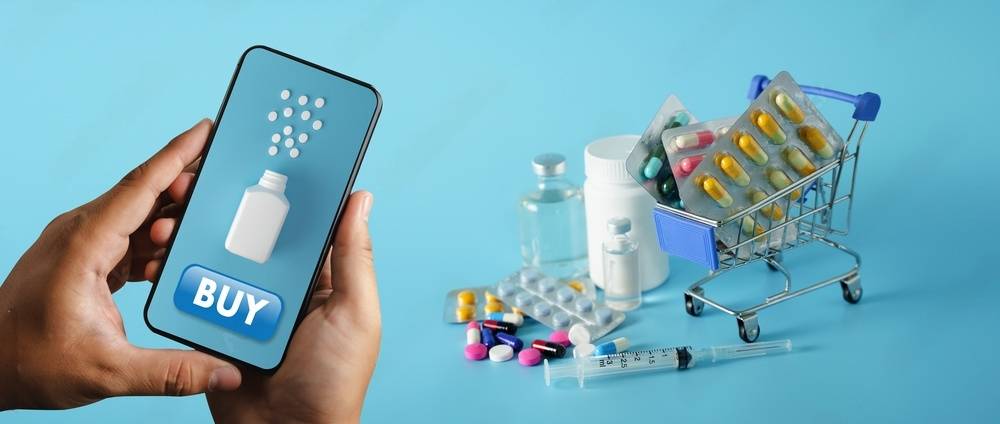Healthcare has undergone a dramatic digital transformation in recent years. Technology advancement has resulted in online medicine delivery apps as an efficient method for patients, but how can startups build one themselves?
As a result of a global pandemic, online healthcare services and telemedicine services have seen rapid adoption rates. Therefore, creating a medicine delivery app for your startup could be a wise move; but the process can be intimidating if this is your first venture into app creation.
Building an online medicine delivery app takes strategic thinking and careful preparation. From conducting market research to choosing an ideal technology stack, there are multiple components of consideration when designing such an app. In this article, we’ll walk through the essential steps of medicine delivery app development for startups. Whether you are a healthcare professional or an entrepreneur alike, this guide can assist in creating a successful medicine delivery application online.
Different Models to Develop An Online Medicine App

Starting an online pharmacy app can be an attractive business venture in today’s digital economy. The on-demand medicine delivery app development market is rapidly growing, providing entrepreneurs with many models from which to launch their apps.
Single-Store Model: To take this route, partner with a nearby pharmacy and create an app enabling customers to order prescription medicine online and have it sent directly to them – ideal for small businesses seeking to grow customer bases while increasing revenue through online sales.
Aggregator Model: To implement this model, multiple local pharmacies join together and form a platform allowing customers to compare prices and select one that meets their individual needs best. This provides customers with more choices while leading to increased sales across all participating pharmacies.
Customer-Oriented Model: Businesses looking to gain a competitive advantage should create apps focused on providing personalized services such as automatic refills or medication reminders that focus on providing customers with tailored experiences that enhance customer relations should opt for this model. It can help set them apart by offering unique features which enhance the customer journey experience.
No matter which model is chosen, on-demand medicine delivery app development that prioritizes user experience, security, and regulatory compliance is of utmost importance for its success in this market. Features like secure payment processing, real-time order tracking capabilities and user-friendly interfaces will play an integral part in success within this space.
User Roles Of Online Pharmacy App And Their Feature Stack:
Online medicine delivery apps have revolutionized healthcare over recent years. Customers can order medicines and healthcare products directly from home with these applications; app development services for these apps offer features tailored for every role, such as customer, pharmacy, admin panel and courier delivery apps.
Customer App Feature Stack:
– User registration and login
– Search and browse medicines and healthcare products
– Prescription upload and verification
– Add to cart and checkout
– Product details with images, description, and price
– Order tracking
– Multiple payment options
– Referral and loyalty programs
– Ratings and reviews
– In-app chat with customer support
Pharmacy App Feature Stack:
– User registration and login
– Product management with inventory and pricing
– Prescription management and verification
– Payment gateway integration
– Order management and processing
– Analytics and reports
– In-app chat with customer support
– Referral and loyalty programs
– Ratings and reviews
Admin Panel (Web) Feature Stack:
– User management
– Product management
– Pharmacy management
– Payment management
– Order management
– Referral and loyalty program management
– Customer support management
– Analytics and reports
– App settings and configuration
Courier Delivery App Feature Stack:
– User registration and login
– Navigation and route optimization
– Order management and tracking
– Proof of delivery and signature capture
– Referral and loyalty programs
– In-app chat with customer support
– Ratings and reviews
So, online medicine delivery app development services typically include features tailored for every user role – customers, pharmacies, admins and courier delivery personnel alike – in order to create an intuitive experience for them all.
Online Medicine Delivery Application: The Revenue Model
With the rising demand for online medication delivery apps, pharmacies can now earn revenue online using various revenue models. We will discuss four strategies through which pharmacies can make money through these apps.
- By Commissions:Pharmacies can make money through online medicine delivery apps by charging a commission for each sale made via their apps, usually paid as a percentage of the total sale amount to the app owner by the pharmacy and paid back as payment from the app owner back into pharmacy’s coffers – this revenue model works out well as both parties gain sales while app owner receives a commission from each sale made using his/her app. This revenue source benefits both parties – the pharmacy can increase sales while the app owner earns additional income as commission earned for every sale made via their app owner!
- By Advertising:Online medicine delivery apps also can assist pharmacies in making money by showing advertisements from businesses looking to showcase their goods or services on the app, charging businesses a fee in return. This revenue model can prove particularly effective for large customer base pharmacies who can monetize their app without passing along charges to users of the service.
- Charging Delivery Fees:Pharmacies can make additional revenue by charging delivery fees on orders placed through their app, providing home delivery service pharmacies with a way of covering delivery expenses while making an additional profit from it. This revenue model may be especially useful.
- By Surging Prices: Pharmacies can earn extra revenue during high-demand periods by raising prices during these peak times and managing both their supply and demand effectively. By upping their rates during these busy hours, pharmacies can increase both revenue and supply/demand balance.
So, online medicine delivery app development services have allowed pharmacies to earn money through various revenue models online, which enable them to increase sales, reach wider audiences, and ultimately enhance profitability. Therefore, pharmacies that have yet to adopt such apps should seriously consider doing so to take advantage of the growing need for online medication delivery services.
Costing of An Online Medicine Delivery App

Online medicine delivery apps have gained in popularity recently due to the COVID-19 pandemic, especially as more prescriptions become necessary than ever. When developing such an app, several factors must be carefully taken into consideration that could significantly change its total costs; we will explore this subject here in more depth and will also highlight factors that influence this overall figure. In this article, we’ll also look into developing such an online medicine delivery app and its effects.
Cost estimates range anywhere from $10,000 to $50,000 when developing an online medicine delivery app, depending on various variables.
- Cost considerations largely hinge upon the methodology and web app development solutions utilized. There are two primary development methodologies, native app development and hybrid app development; native app development tends to be more costly as developers must write code specifically tailored for each platform separately.
- A second factor influencing the cost of developing an online medicine delivery app is the features and functionalities required by users, such as user registration, prescription upload, order tracking and payment gateway integration. As more features an app requires to build, the higher its development costs become.
- The design of an online medicine delivery app is another factor influencing its cost, and it should feature an appealing, user-friendly layout with smooth navigation capabilities that are also responsive to various screen sizes.
- A key element that determines the cost of developing an online medicine delivery app is the technology used. An app should utilize cutting-edge programming languages and hardware compatibility features.
- Testing and quality assurance represent another factor affecting the cost of developing an online medicine delivery app, with rigorous tests undertaken to make sure it’s bug-free, works as intended and does not expose security flaws.
So, cost estimates to build an online medicine delivery app vary significantly based on several variables. Key influencers include development methodology, features, functionalities, design choices, technologies used, testing, quality assurance activities, as well as the quality assurance providers used for different purposes. Businesses looking into creating such apps should carefully consider all relevant elements when seeking web app development solutions partners to get the maximum return for investment in developing an OMDA app.
Final Thoughts
So, creating an online medicine delivery app requires careful planning and execution. When creating such mobile app solutions, it is crucial that they take into consideration factors like user experience, security and regulatory compliance – this way, businesses will have mobile app solutions that not only meet customers’ needs but help stay ahead of the competition too! With demand increasing for this type of delivery service, now is an opportune moment to invest in developing an application that can reach wider audiences while expanding business operations.
Also Read:
- Revamp your mobile apps with the latest in AI and Machine Learning Solutions
- Cross-Platform Mobile Development: Four Popular Frameworks
Author

Kirtan is CEO of Whitelotus Corporation, an emerging tech agency aimed to empower startups and enterprises around the world by its digital software solutions such as mobile and web applications. As a CEO, he plays key role in business development by bringing innovation through latest technical service offering, creating various strategic partnerships, and help build company's global reputation by delivering excellence to customers.
View all posts









